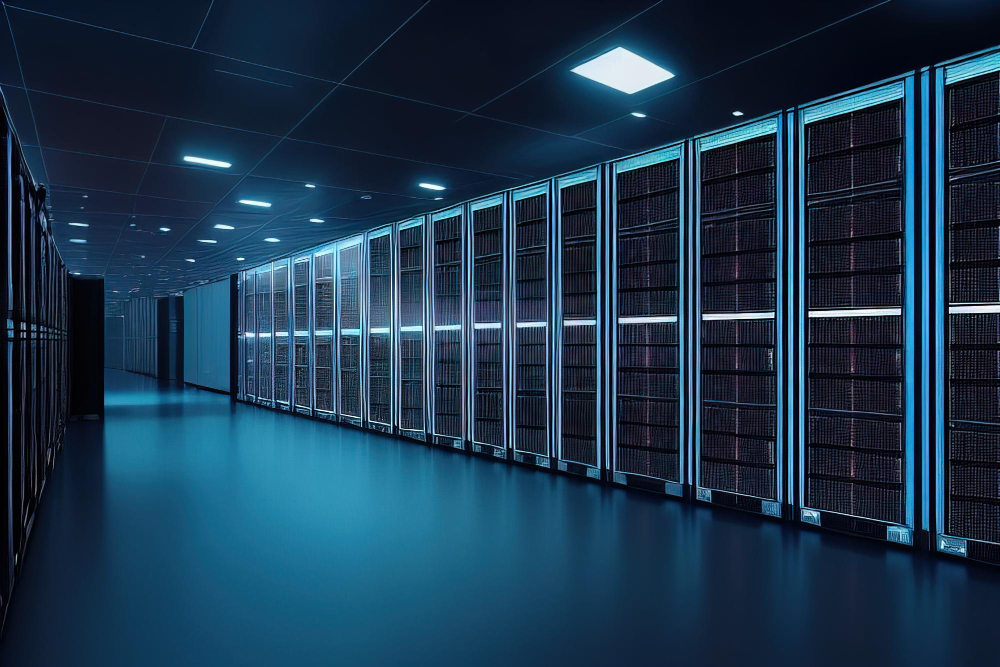A dedicated email server is a server that is exclusively used for sending and receiving emails by a single organization or domain. Unlike a shared email server, where multiple users or domains share the same server and resources, a dedicated email server gives you full control and ownership of your email infrastructure.
Why choose a dedicated email server?
A dedicated email server has several advantages over a shared email server, such as:
Higher security and privacy.
With a dedicated email server, you can ensure that your email data is not accessible by other users or domains, and that it is protected from unauthorized access, hacking or spamming. You can also implement your own security policies and standards, such as encryption, authentication and compliance.
Greater control and customization.
With a dedicated email server, you can configure the server according to your specific needs and preferences. You can choose the software, hardware and features that suit your email communication goals. You can also customize the appearance and functionality of your email interface, such as the domain email name, logo and signature.
Better performance and reliability.
With a dedicated email server, you can avoid the potential issues of sharing a server with other users or domains, such as slow speed, downtime, errors or conflicts. You can also optimize the performance of your server by adjusting the settings, resources and bandwidth according to your email traffic and demand.
Who needs a dedicated email server?
A dedicated email server may be suitable for organizations or domains that:

– Have a large volume of email traffic or a high demand for email services. If you send or receive a lot of emails on a daily basis, or if you use email for critical business functions, such as marketing, sales or customer service, you may benefit from having a dedicated email server that can handle your workload and ensure timely and efficient delivery.
– Require a high level of security and compliance for their email communications. If you deal with sensitive or confidential information in your emails, such as personal data, financial transactions or legal documents, you may need a dedicated email server that can provide you with the highest level of security and compliance. You may also need to comply with certain regulations or standards in your industry or region, such as GDPR, HIPAA or PCI DSS.
– Want to have a unique and consistent email identity and branding. If you want to establish a strong online presence and reputation for your organization or domain, you may want to have a dedicated email server that can give you a unique and consistent email identity and branding. You can use your own domain name for your email address, such as name@yourdomain.com, instead of using a generic or third-party provider, such as name@gmail.com. You can also create a professional and attractive email interface that reflects your brand image and values.
How to set up a dedicated email server?
A dedicated email server can be set up either on-premise or in the cloud, depending on the budget, resources and goals of your organization or domain.
An on-premise dedicated email server is a server that is physically located in your office or premises. It requires you to purchase, install and maintain the hardware and software components of the server. It also requires you to have the technical expertise and staff to manage the server.
A cloud-based dedicated email server is a server that is hosted by a third-party provider on the internet. It requires you to pay a monthly or annual fee for the service and access the server through an online platform. It also requires you to trust the provider with your email data and security.
Both options have their pros and cons, which you should weigh carefully before making a decision.
Pros and cons of a dedicated email server
Cost
An on-premise dedicated email server may have a higher initial cost than a cloud-based one, as you need to invest in the hardware and software components of the server. However, it may have lower ongoing costs than a cloud-based one, as you do not need to pay for the service fee or any additional features or upgrades. A cloud-based dedicated email server may have lower initial costs than an on-premise one, as you do not need to purchase any hardware or software components of the server. However, it may have higher ongoing costs than an on-premise one, as you need to pay for the service fee and any additional features or upgrades.
Security
An on-premise dedicated email server may offer more security than a cloud-based one, as you have full control over your data and who can access it. You can also implement your own security measures and policies according to your needs. A cloud-based dedicated email server may offer less security than an on-premise one, as you have to rely on the provider to protect your data and who can access it. You may also have to comply with the Email provider’s security measures and policies, which may not match your needs.
Scalability
A cloud-based dedicated email server may offer more scalability than an on-premise one, as you can easily adjust the resources and features of the server according to your email traffic and demand. You can also access the server from anywhere and any device with an internet connection. An on-premise dedicated email server may offer less scalability than a cloud-based one, as you may have to purchase additional hardware or software components to expand the capacity or functionality of the server. You may also have to access the server from a specific location and device.
Reliability.
A cloud-based dedicated email server may offer more reliability than an on-premise one, as you can rely on the provider to ensure the availability and performance of the server. You can also benefit from the provider’s backup and recovery services in case of any issues or disasters. An on-premise dedicated email server may offer less reliability than a cloud-based one, as you are responsible for ensuring the availability and performance of the server. You may also have to provide your own backup and recovery services in case of any issues or disasters.
What are the challenges of having a dedicated email server?
A dedicated email server requires regular maintenance and management, such as updating the software, monitoring the performance, backing up the data and resolving any issues that may arise. These tasks can be time-consuming, complex and costly, especially if you do not have the technical expertise or staff to handle them.
Therefore, before you decide to have a dedicated email server, you should assess whether you have the resources and capabilities to maintain and manage it effectively. You should also consider whether you can outsource some or all of these tasks to a professional service provider who can help you with your dedicated email server needs.
Conclusion
A dedicated email server is a powerful and flexible solution for your email communication needs. It can provide you with higher security, greater control, better performance and a unique identity for your organization or domain.
However, it also comes with some challenges and costs that you should be aware of and prepared for. You should carefully evaluate your needs, goals and options before choosing a dedicated email server for your organization or domain.
If you need any help or advice on setting up or managing a dedicated email server, feel free to contact us at sales@mailsafi.com. We are a team of experts who can help you with your dedicated email server needs.
![]()




